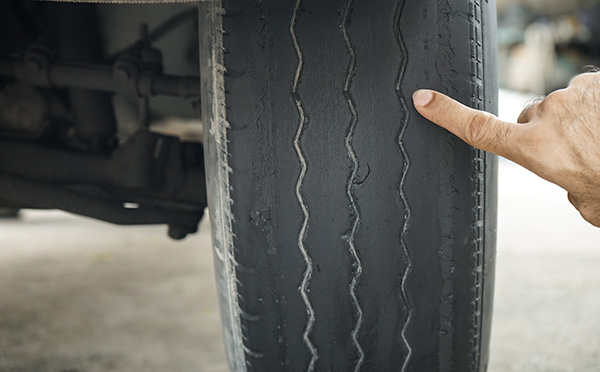
Hearing a deep humming or droning noise that grows louder as you pick up speed can be both distracting and concerning. It’s a sound many drivers mistake for wind noise or engine trouble, but more often than not, it’s coming from the tires. That low whirring is often a sign of uneven tread wear, misalignment, or internal tire issues. Addressing it on time improves your ride quality and can prevent bigger problems and costly repairs later on. What could your tires be trying to tell you?
The Sound of Uneven Tire Wear
The most common reason tires start sounding weird is irregular tread wear. If parts of the tire are wearing unevenly—whether from alignment issues, suspension problems, or improper inflation—they’ll develop a pattern that causes the tire to make rhythmic noise as it rotates.
This often shows up as “cupping” or “feathering,” where the tread surface forms high and low spots. As the tire spins, those inconsistencies hit the road at different intervals, creating a low-pitched drumming sound.
You might not even notice it at low speeds, but once you hit 30 to 40 mph, the sound builds and can become almost unbearable at highway speeds.
Wheel Bearings and Suspension Issues
While tires are usually the source, worn wheel bearings or suspension components can also cause similar noises. A failing wheel bearing creates a humming or growling sound that changes with speed and may get louder when you turn.
Bad shocks or struts can’t keep the tires planted firmly on the road, allowing them to bounce more than they should. This contributes to irregular tire wear and often creates the “rotor blade” effect you hear when driving.
If your vehicle hasn’t had a suspension check in a while, or you’ve noticed extra bounce or pulling to one side, it’s worth having everything underneath inspected.
Low-Quality or Aggressive Tread Patterns
Sometimes the noise isn’t due to damage at all—it’s simply the type of tire you’re running. Some all-terrain or performance tires are designed with more aggressive tread blocks that naturally produce more road noise.
These tires might sound fine when new but get louder as they wear. In those cases, the sound is normal—but it can still be reduced with regular rotations and proper inflation.
If you're unsure whether the noise is normal for your tire type, a technician can compare the wear pattern and tread design to help you decide if replacement or adjustment is needed.
When Tire Noise Means It’s Time for a Replacement
If your tires are worn unevenly or badly cupped, they usually can't be “fixed”—they’ll need to be replaced. You can rotate them to a less noisy position temporarily, but that’s a short-term solution.
If the noise is being caused by old or degraded tires, it’s not just about comfort. Irregular tread means reduced contact with the road, longer braking distances, and a higher risk of hydroplaning.
A new set of quality tires with proper balancing, alignment, and suspension support will not only make your car quieter—it will make it safer, too.
Whether it’s tire cupping, alignment issues, or something deeper, The Model Garage in Berkeley, CA, has the tools and experience to fix it. Book your appointment today.